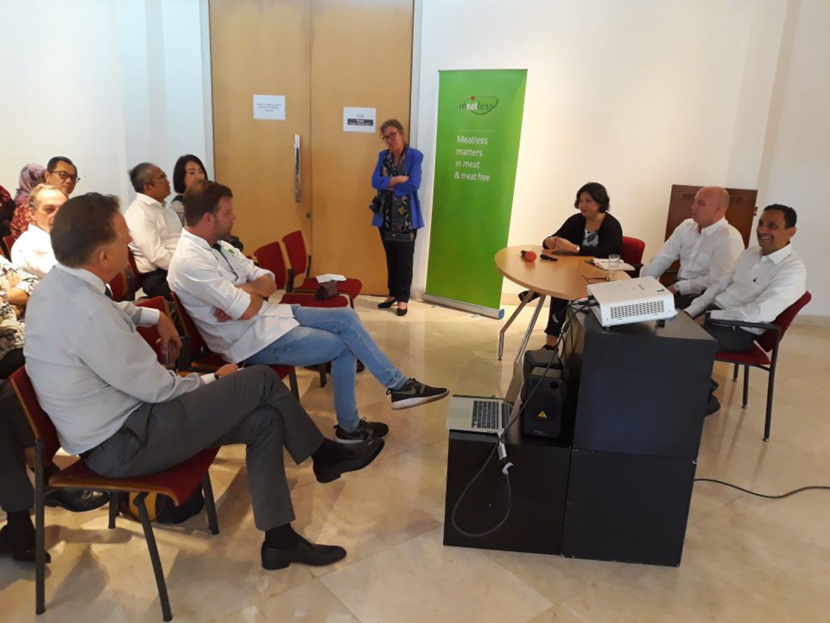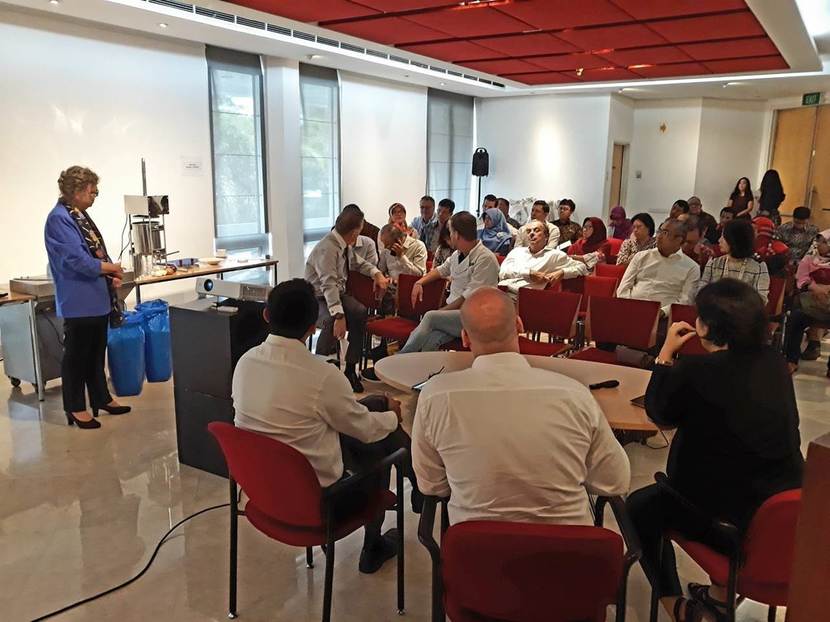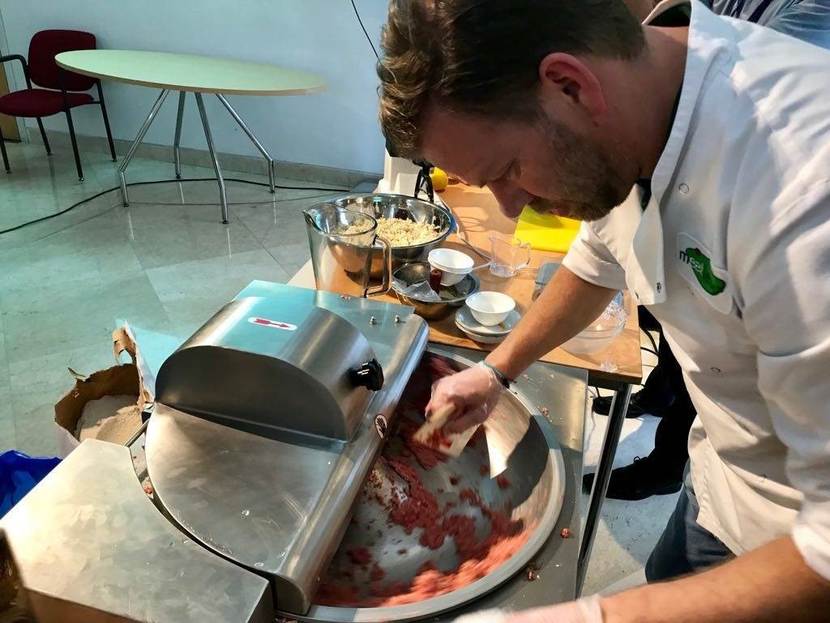MEATLESS, an alternative solution to balanced protein intake, a healthy diet
The unprecedented rapid rise of global meat consumption is projected to climb over 40% by 2030. That is equivalent to a yearly 450 million tons of meat served to sizeable population growth with increasing disposable income. Critics argue the environmental and health impacts from the overconsumption, forcing the industry to inject gradual and sustained changes in order to satisfy the demand.

Innovative solution
Meatless B.V. embraces the shift in the market and offers an innovative solution for alternative high protein intake. On March 7, the Dutch company visited the Erasmus Huis in Jakarta, Indonesia, to demonstrate successful recipe for higher value and quality foods. They are made by vegetable fiber used for the production of vegetable meat substitute.
Peter de Kam explained that Meatless uses hybrid techniques, combining meat and vegetable products. The second generation meat extension techniques are not extrusion based or soy, but contains seaweed and natural wholefood grains and legumes, such as rice, wheat, beans, pea and tapioca. The products come in Dehydrated Rice Flakes and are fat replacer in processed meat or fish - tasty for texturized snacks, meals and components, burgers.

Will the business concept work for Indonesia’s most discerning taste palate while staying economically competitive and commercially viable for the industry?
Panel discussion
During the panel discussion in which Lucie Wassink, the Embassy’s Agriculture Counsellor, chaired, guests explored the opportunity. Silvana Paath of Humanist Organization for Development Cooperation (HIVOS) explained how food is deeply rooted in the culture and that majority skip meat due to high cost. Meanwhile, Ravi Menon from Global Alliance for Improved Nutrition (GAIN) shared how grassroots’ intervention attempts to end malnutrition amongst under-nourished pregnant women and underage children. The effort is a way forward to achieving SDGs (Sustainable Development Goals).
The Halal certified Meatless aims to collaborate with local food suppliers and producers in tackling the biggest threshold about acceptance and perception on meat-free or vegan. It is open to invest in B2B entrepreneurs to scale up production for South East Asian market.
